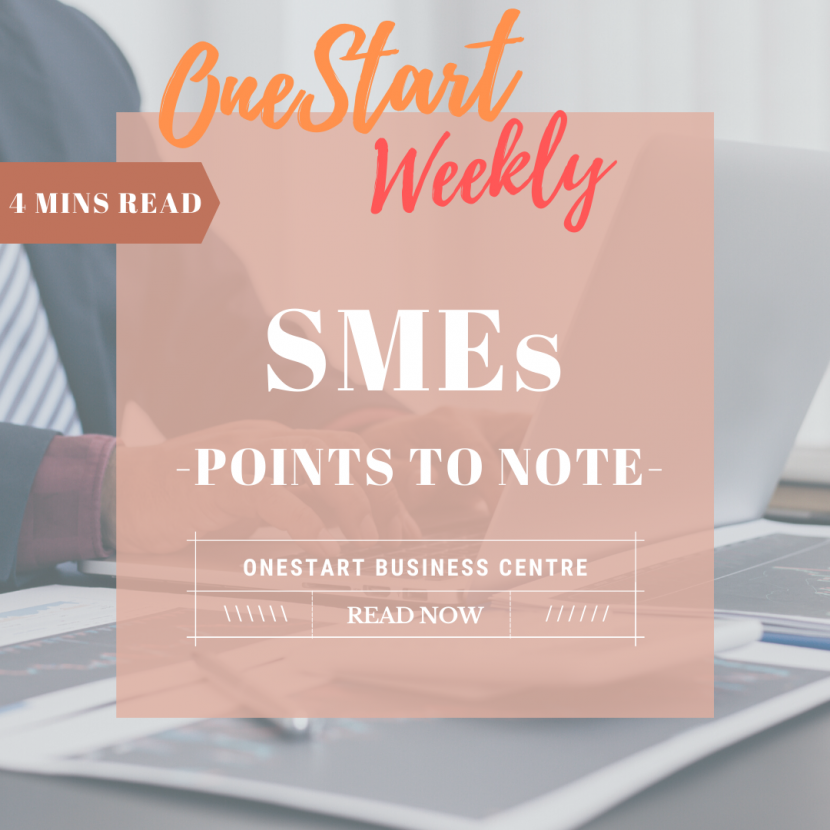SME Business Reminder
For start-ups / SMEs, the initial company formation process is especially important. Whether it's opening a business bank account or preparing to file a tax return, you also need to do preparation. OneStart business centre has compared information about opening an account with several popular banks in Hong Kong, such as account opening fees, minimum deposit, and some tax declaration considerations.
Documents required for company account opening
Generally speaking, company types can be divided into three types: sole proprietorship company, partnership company and limited company. When a start-up enterprise opens a business account, it needs to provide the required information and documents to the bank according to the company type.
- Valid business registration certificate
- Proof of identity and proof of address provided by the sole proprietorship holder and authorised signatory
- Commercial supporting documents (invoices, commercial contracts, development plans, etc.)
- Identity documents and proof of address provided by directors, all beneficial owners and all authorised signatories
- Commercial supporting documents (invoices, commercial contracts, development plans, etc.)
- Equity structure chart of the ultimate beneficial owner of the company
Start-up business tax return
Start-ups will receive a Profits Tax Return issued by the Hong Kong Inland Revenue Department after 18 months of business. However, accounting and auditing work takes a long time to process. If you want to deal with tax-related matters as soon as possible, you may wish to refer to the following practices.
- Prepare for bookkeeping
Documents for the day-to-day operations of the company, such as sales invoices, proof of income, proof of expenses, bank statements, etc., should be prepared in advance for complete accounting records. - cloud storage file
The relevant documents can be stored in the cloud, which saves administrative costs and reduces human risks. It is the easiest and fastest way to process a large number of documents and access data. - Hire an Accounting Consultant
The audit work must be completed by a Hong Kong certified public accountant, so it is necessary to provide complete accounting records that comply with accounting standards, such as balance sheets, profit and loss statements, financial trial balances and other documents for the accountants to conduct audit work and follow up related matters.
Business bank account
Before opening a bank account, it is necessary to complete the business registration and company registration procedures for the company to obtain the necessary documents for opening an account. The procedure for opening an account and the required documents depend on the chosen bank.
Banks in Hong Kong generally require a minimum deposit amount, and each bank requires a different amount. In order to prevent the banking system from being exploited by international criminal or money laundering groups, the bank may require customers to provide information on the identity and nationality of the company's interest holders.
Enterprises and individuals can enjoy a simple and transparent tax system and low tax burden in Hong Kong. The advantages of Hong Kong's taxation lie in that there are only three direct taxes and an allowance system, which reduces the tax burden.
The 3 direct taxes are:
- The profits tax rate for the first HK$2 million of the corporation is 8.25%, and the subsequent assessable profits are 16.5%. For unincorporated persons of sole proprietorship or partnership business, the two tiers of profits tax rates are 7.5% and 15% respectively.
- The maximum personal salaries tax rate is 15%
- The property tax rate is set at 15%
The following types of taxes are exempted, which is another advantage of the Hong Kong tax system:
- Sales Tax / Consumption Tax / Value Added Tax
- withholding tax
- capital gains tax
- dividend tax
- estate tax
Protection of intellectual property
Many small and medium-sized enterprises or designers work hard to design and produce their own products, hoping to make a breakthrough in the market. Therefore, if the original product is to be successful, the protection of intellectual property (IP) cannot be neglected. In particular, small and medium-sized enterprises have limited resources, and the handling of intellectual property must be "one-shot" and avoid mistakes. The following 4 ways to protect intellectual property rights are shared, which SMEs must know!
Basic knowledge ready
The first step in protecting intellectual property rights is to lay a solid foundation. SMEs must have a basic "defense" awareness of protecting their own creations, inventions and product designs. The more important intellectual property rights include trademarks, patents, and designs. and copyright. Enterprises can apply to the Intellectual Property Department for registration of their trademarks, patents and designs. The Intellectual Property Department assists in formulating policies and legislation for the protection of intellectual property rights in Hong Kong, and administers the Trade Marks Registry, the Patents Registry, the Designs Registry and the Copyright Licensing Bodies Registry.
Trademark
Successful registration without trouble
A trademark is a sign used to identify the goods or services of different merchants. If an enterprise wishes to register a trademark, it must apply to the Trademark Registry under the Intellectual Property Department, and should ensure that the information provided to support its application for trademark registration meets the statutory requirements of the Trademark Ordinance to avoid some common problems such as trademark registration The illustration is not clear enough, the description of the goods or services applied for is incorrectly classified, and both Chinese and English are used when filling out the form.
Patent
In Hong Kong, individuals or companies can choose standard patent or short-term patent protection for their inventions.
A standard patent is valid for a maximum of 20 years. There are two application methods,
(i) "standard patent (original grant") -
the applicant submits a patent application directly to the Intellectual Property Department, and the Intellectual Property Department conducts formal and substantive examination. The procedure generally takes at least 2 up to 3 years; and
(ii) "standard patent transcription" -
the applicant has three designated patent offices outside Hong Kong for the same invention (the State Intellectual Property Office of the People's Republic of China, the UK Intellectual Property Office and the European Patent Office (for designated UK patent offices) In the case of patent applications)), after filing a standard patent application, it may file an application for a "standard patent of transcription" with the Intellectual Property Department, and the Intellectual Property Department will conduct formal examination.
Short-term patent protection is valid for a maximum of 8 years, and the application is reviewed and approved by the Intellectual Property Office. The process generally takes about 3 to 5 months.
The most important consideration in choosing whether to apply for a standard patent or a short-term patent is the nature of the patented product, method or innovative invention and its expected use/commercialization cycle in the Hong Kong market.
Whether you need services such as trademark registration, tax declaration, company establishment, etc.,
OneStart Business Center has someone to help you!
Call 3575 6888 now, or Whatsapp our sales consultants for more details!












